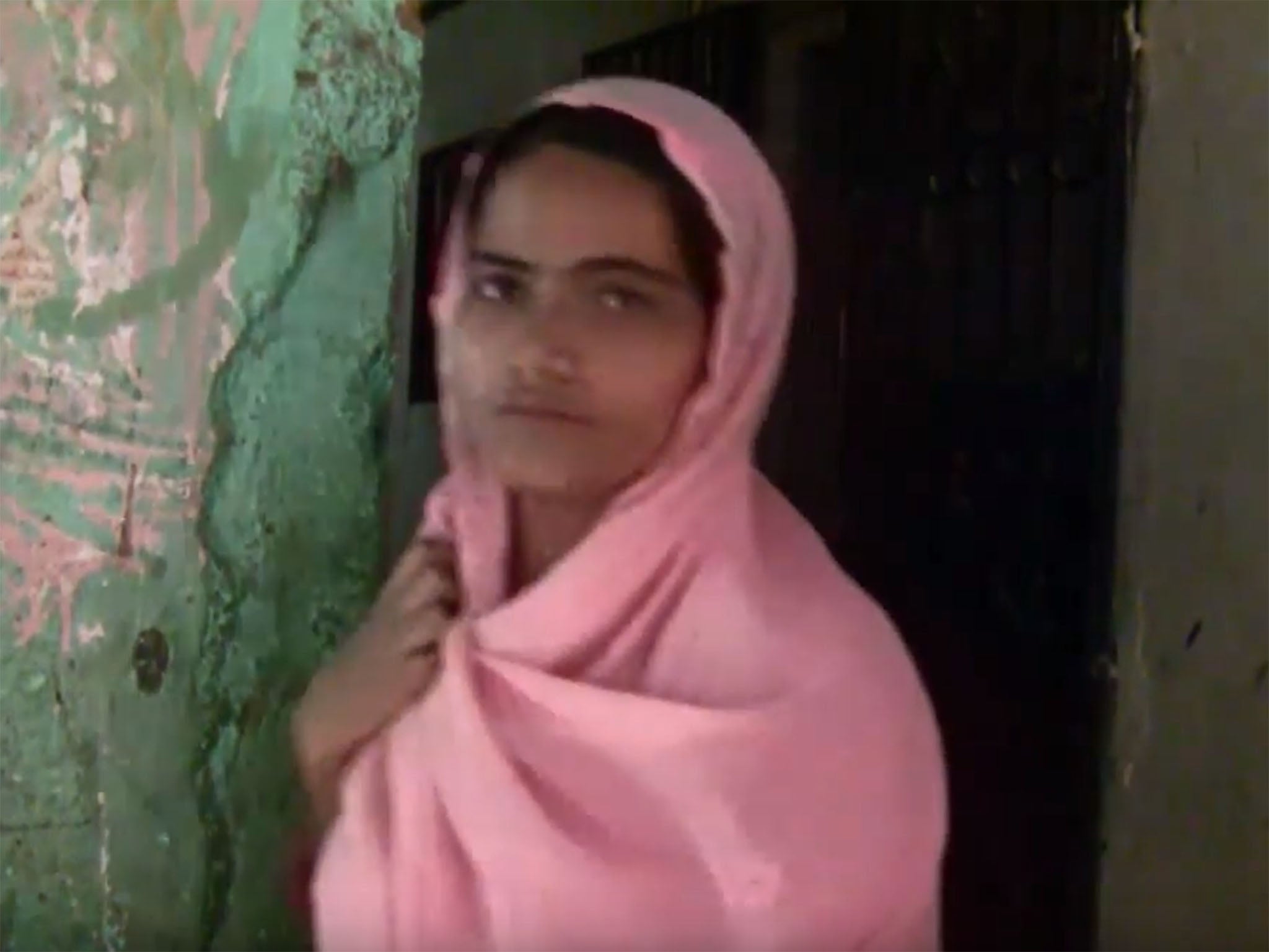Rape victims in Pakistan are risking everything for justice
Small battles have been won, but the fight for justice continues for many of Pakistan’s women

Eight years after she was kidnapped and raped by three men, Kainat Soomro is still fighting for the justice she believes she and her family deserve.
Ms Soomro was 13 years old when she was attacked by three men on her way to buy a toy for her newborn niece.
Although clearly still troubled by the incident, she has taken her sexual abuse case public.
For the last eight years she has been going to Pakistan's courts, holding protests, rejecting the rulings of the traditional Jirga council, and taking on the powerful landlord and politician who she says are protecting her attackers.
However, Ms Soomro’s bravery has cost her family dear. In 2010 her brother was killed because she refused to stay silent.
As a result of the shame which has apparently been brought upon her family, one of her sisters remains unmarried, and another is divorced because her inlaws did not want to be associated with the girl.
Her father, Ghulum Nabi Soomro, said: "They know about our troubles thousands of miles away but here in the next street no-one is helping us get justice."
Ms Soomro’s struggle inspired the award-winning 2014 movie “Outlawed in Pakistan”, and Pakistani teenage Nobel Peace Prize winner Malala Yousefzai has helped Ms Soomro financially through her fund.
But still her attackers walk free.
In Pakistan, despite fear preventing many women from reporting sexual violence, the independent Human Rights Commission of Pakistan recorded 423 rapes and 304 gang rapes last year.
Human rights workers say police often refuse to register cases involving attacks against women, and the rich and powerful are practically immune.
Needless to say, attackers are rarely jailed, and every day a woman is killed in the name of honour – for allegedly bringing shame on the family.
In Januray, the national parliament refused to pass laws to ban child marriage, instead giving in to the right-wing Islamic Ideology Council, an advisory group with no legal authority.
The Council has also said taking DNA tests to identify suspected rapists is against Islam.
Even so, there are small victories in the country. Southern Sindh province passed legislation which aims to protect women and ban underage marriages.
However, convincing police to register cases, judges to implement laws and removing authority from hard-line groups like the Islamic Ideology Council is another matter.
Mahtab Akbar Rashdi, an MP in Southern Sindh province, said: “When you have a law it is like a weapon, when you need it you can use it.”
She said the national government panders to a narrow and restrictive view of Islam, which mostly targets women.
Of the Islamic Ideology Council, she says: “It's as if women for them are the biggest problem in Islam.”
Additional reporting by Associated Press
Join our commenting forum
Join thought-provoking conversations, follow other Independent readers and see their replies
Comments
Bookmark popover
Removed from bookmarks